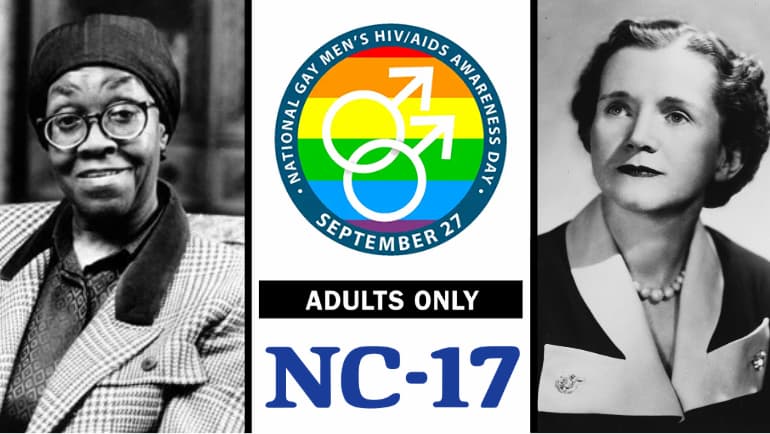Check out This Day in History for Sept. 27, MainStream’s daily look at significant progressive, intersectional historical events.
1919: The Democratic National Committee votes to allow female members, just a few months after the passage of the 19th Amendment that gave women the right to vote, but a few months before the Amendment was applied in practice.
1938: The Nazi regime in Germany bans Jewish lawyers from practicing law, five years after taking power.
1950: Gwendolyn Brooks becomes the first African-American to win the Pulitzer Prize, receiving the honor for her second book of poetry, “Annie Allen.”
1961: Rachel Carson publishes “Silent Spring,” the book about the dangers of pesticide use that eventually leads to the banning of DDT.
1979: The U.S. Congress approves the U.S. Department of Education, which had been relegated to a smaller “office” since its original founding in 1867.
1990: The Motion Picture Association of America creates the new NC-17 (no children under 17) rating to replace the infamous X-rating.
2008: The National Association of People with AIDS (NAPWA), which is the country’s oldest HIV advocacy organization, creates the National Gay Men’s HIV/AIDS Awareness Day (NGMHAAD) “to recognize the disproportionate impact of the epidemic on gay men,” who along with bisexual men account for about 67 percent of HIV infections.
2018: India’s Supreme Court declares its anti-adultery law, Section 497, unconstitutional because it only allowed the complainant to be a man whose wife had sex with another man, infringing on the rights of women. Though declared unconstitutional, the law remains a grounds for requesting divorce in India.
2024: The Israeli Army assassinates Hasran Nasallah, who had led Hezbollah for 30 years. The killing was largely in retaliation for the October 7 Massacre in 2023, after which Hezbollah had begun bombing Israel in solidarity with Hamas, the terrorist group that conducted the massacre.
References for today’s historical summary include On This Day, HIV.gov, Lavender Effect, and Historynet.net.


